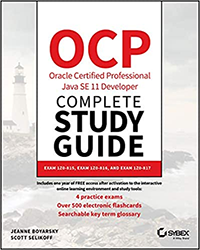Kirk Pepperdine
For other QCon blog posts, see QCon live blog table of contents
General
- Slow database queries, inefficient app code and too many database queries are most reported problems
- Once drill down, over 70% of all Java apps are bottlenecked on memory churn. It’s not reported because hard to observe
- Tend to put logging around past problems.
- If apply instrument to a system, it will always tell you something. And then you act on it
- Cheapar to predict than react
Common libraries
- Logback
- Marshalling Json, SQL
- Caching products
- Hibernate
Memory
- Java heap has generations
- Hopefully people have moved to G1GC
- Everything happens in the free list
Problems
- Large number of temporary objects quickly fills Eden
- Causes frequent young cycles. Causes premature promotion which means will go to tenured too early
- Heap becomes more fragment
- Allocation is quick. No cost to collect if objects die quickly. However, still slow if you do something quick enough times.
- Large live data set size. Data consistently live in your heap. Increases time to copy/compact. Likely have less space to copy to. Think about Windows defragmenter. [Do people still have to do that?]
- Memory leak from unstable live data. JVM will terminate if you are lucky.
- Out of memory – 98% of recent time spent in GC with less than 2% of heap recovered. If don’t meet that criteria, app is just really slow, but don’t get the out of memory error.
Escape analysis
- Test applied to a piece of data. What is the visibility/scope.
- If scoped locally, only thread that created it can see it.
- If passed to method, partial escape.
- If data scoped so multiple threads can see it (Ex: static), full escape.
Demo
- Showed GC log. Want to see low pause times
- Showed allocation rates. Problem if too high
- In Visual VM, looked at profiler. Check filters to ensure not filtering the bottleneck out of your profile
- Sort by # allocated objects to see frequency. It doesn’t take longer to allocate a large object than a small one.
- Take a snapshot and look at trace
- “Stop thinking” – explore what is shown without assuming
- Time to look at the code from the stack trace that is creating all the objects
- Escape analysis code
- Run jitwatch to see allocations. Can see if direct/inline allocation. Can see when bytecode eliminates an allocation
- Profiler is lying to you.
- Performance differs in test vs prod environment
Q&A
- How know the performance problem is the int[] in the demo? Went through profiler to show stack trace. Used BigInteger which uses up a lot more memory than a long
- Absolute number for GC allocation rate? Sparc? Number seem to hold regardless of hardware. Should focus on the CPU going forward.
- <missed question> – try to find mutable state that is not shared
My impression
This was great. I learned a lot and it kept my attention. I really liked the demo.

